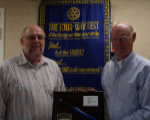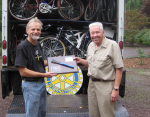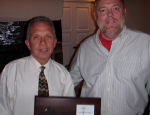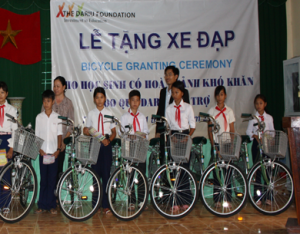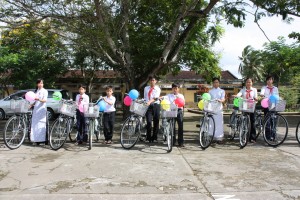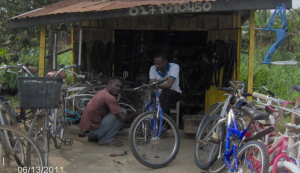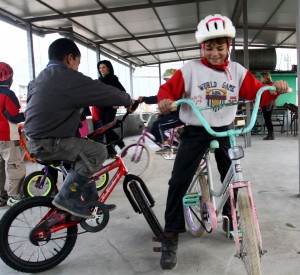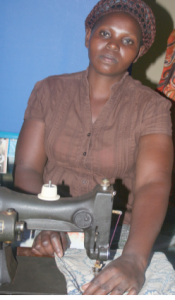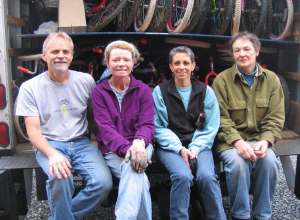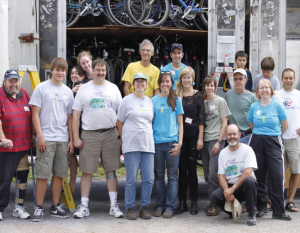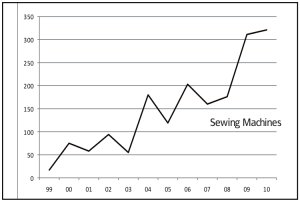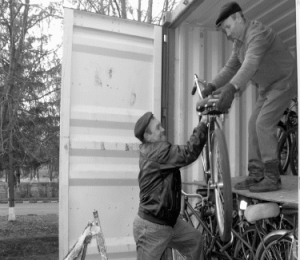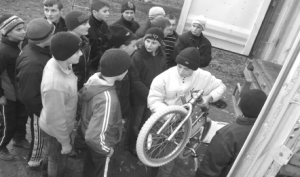by Patricia Hamill
Spring 2012 InGear
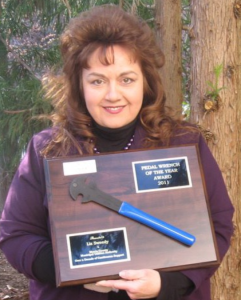
The philanthropic spirit descends upon most of us in various ways and at differing frequencies throughout the year. We may tire of the interruptions of our favorite radio programs and figure our $5 will get the fund drive chatter to end sooner or we may be unable to resist the angelic face of the child at the door shaking the collection jar. But what truly differentiates the sporadically involved donor from the civic minded, community service for the community’s sake organizer? The tireless and ongoing dedication to and enthusiasm for a cause. Liz Sweedy is one of those enthusiastic people. Since 2003, she has been in charge of coordinating the annual Pedals for Progress bicycle collection events for the Morris County Municipal Utilities Authority (MCMUA) in New Jersey.
According to P4P’s 2011 Pedal Wrench of the Year award winner, “My passion for P4P has been in full gear ever since our first bicycle collection event occurred, and that’s for two reasons. First, I’m very happy that unwanted, used bicycles have been spared from spending an eternity in landfills. Second, I’m delighted that these bicycles, which I fondly call ‘precious gems,’ provide assistance and joy to folks whose lives are virtually transformed as a result of having them.”
To date, this municipality has coordinated the collection of literally thousands of bicycles. The members of the MCMUA are not the sole participants in this collection process. The County College of Morris in Randolph donates the use of one of its parking lots for the County’s June collection day. Members of a local Boy Scout troop volunteer by unloading bikes from vehicles and doing some mechanical preparation so the bikes can be shipped. Local newspapers, cable TV programs referencing P4P, or signs advertising the event are what draw bicycle donors who happily include $10.00 along with each bike, understanding that this helps alleviate transportation costs.
This is only one example of groups of people from disparate organizations coming together and coordinating an ongoing, efficiently run bicycle donation event that repeatedly draws enthusiastic participants. The Boy Scouts of America and some Rotary clubs have offered financial assistance for events similar to the one sponsored by the MCMUA and some municipalities receive the $10.00-per-bicycle fee from local service organizations. This makes it possible for people to donate bikes that are occasionally collected from roadsides or illegal dumping sites without having to reach into their own pockets for the accompanying $10. Another option is to apply to a local municipality for a New Jersey Clean Communities Mini-Grant Clean UP Program. These grants tend to be awarded to non-profit organizations that conduct litter cleanups. The non-profits apply the funds from the mini-grant toward the fee for the bicycles that are found and donated.
One would think that it is not so easy to interest people in participating in a cause, much less year after year; but, when local businesses, organizations, and schools cooperate and dedicate their efforts, the results are often staggering. As Sweedy puts it, “In a nutshell, my organizing and executing P4P collection events causes me to experience all sorts of good feelings. Hurrah for P4P—may its wheels continue to turn!” No matter how near or far the recipients of your philanthropy reside, active and continuing participation in your community has long-reaching and lasting benefits for everyone involved.

